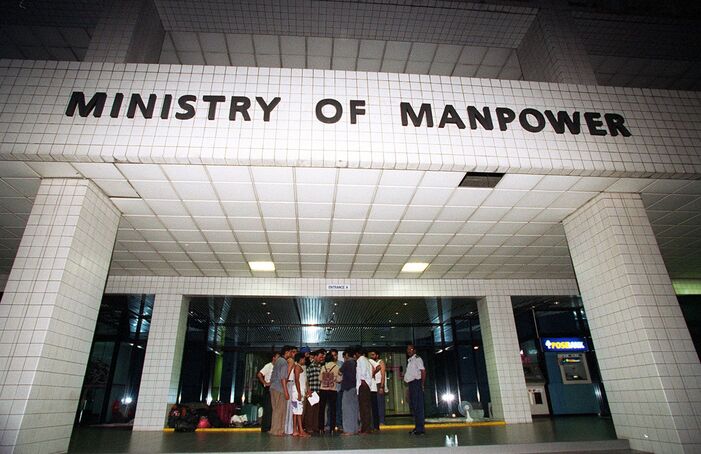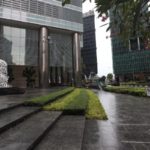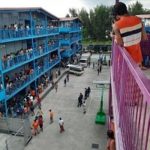Changes in Hiring Foreign Domestic Workers with Employment Pass and S Pass

The Ministry Of Manpower is constantly reviewing requirements to ensure fair employment for local workers while managing the need for foreign domestic workers in Singapore. Mom Sg can assist you with your application for the relevant employment pass and s pass in Singapore and navigate through the important changes in MOM rules from time to time.
Changes to Employment Pass and S Pass Requirements
Employment Pass
From 1 May 2020, the monthly minimum salary to qualify for a new Employment Pass (EP) will increase from SGD 3,600 to SGD 3,900. For renewals of EPs, this new rule will apply from 1 May 2021. This is to ease the impact on businesses. To help moderate the impact of the new EP qualifying salary from 1 May 2020, the new salary criteria for renewal applications will only kick in from 1 May 2021.
S Pass
The change will be done in two stages:
Current S Pass Quota | S Pass Quota from 1 January 2021 | S Pass Quota from 1 January 2023 |
20% | 18% | 15% |
The quota reduction will only apply to the S Pass category. The overall foreign domestic worker quota applicable to S Passes and work permits is unchanged for these three sectors. This means that businesses in these sectors can hire more work permit holders (semi-skilled and unskilled foreign domestic workers), as only the quota for S Pass is reduced. The process sector includes plants in the manufacturing of petroleum, petrochemicals, specialty chemicals, and pharmaceutical products.
Changes on Employers Hiring Foreign Employees
The Employment Pass salary threshold has been raised to S$3,900 per month.
The Employment Pass (EP) minimum qualifying salary was last revised in 2017, from S$3,300 to S$3,600 per month. The Ministry of Manpower (MOM) will be raising it to S$3,900 per month, in line with improving wages of fresh graduates of local autonomous universities.
The salary criteria for older and more experienced EP candidates will be raised in tandem. For example, an EP applicant in his early 40s will need to earn around double the new minimum qualifying salary of S$3,900. This takes into account the skillsets such an applicant will be expected to have, and therefore ensuring a level playing field for experienced local mid-career professionals, managers, executives and technicians (PMETs).
In adopting the revised salary criteria, MOM will take a staggered approach to moderate the impact on businesses.
The following revised salary criteria will apply:
- from 1 May 2020 for new EP applicants; and
- from 1 May 2021 for EP renewals.
The government has warned employers to give fair consideration to local candidates prior to selecting foreign applicants. Failure to do so can result in the company being banned from hiring or renewing work permits for foreign domestic workers.
Qualifying for exemption from Fair Consideration Framework job advertising
Under the Fair Consideration Framework (“FCF”), employers submitting EP applications must first advertise the position on MyCareersFuture.sg to ensure fair hiring and guard against job openings being restricted to “closed circles of friends”.
Job positions with a monthly salary of S$15,000 and above are currently exempted from the FCF job advertising requirement. From 1 May 2020, MOM will expand the advertising requirement to include positions paying up to S$20,000 per month. Positions that are more senior remain exempted as they are more likely to be market sensitive. Employers who have pre-selected a foreign candidate and fail to consider qualified local applicants will have their EP application rejected and will be banned from hiring or renewing the passes of foreign domestic workers.
Qualifying salary threshold increased for local employees
To ensure that firms do not hire locals on token salaries just so that they can hire more foreign domestic workers, only workers that are paid above a certain threshold each month, i.e. the Local Qualifying Salary (“LQS”), can be counted towards a firm’s S Pass and Work Permit dependency ratio ceilings (DRCs).
MOM has been regularly updating the LQS to keep pace with rising local wages at the lower end and will be raising the LQS further to S$1,400 per month on 1 July 2020. The local qualifying salary, the minimum salary a local employee must earn to count towards a businesses’ quota for hiring foreign domestic workers will be increased from S$1,300 (US$917) to S$1,400 (US$988). This is to prevent Singaporean companies from hiring locals on so-called ‘token salaries’ in order to receive the foreign worker quota.
Reduction of S Pass quotas for Construction, Marine Shipyard and Process sectors
MOM will implement cuts to S Pass quotas for the Construction, Marine Shipyard and Process sectors in 2021 and 2023 to deter enterprises from hiring low-cost foreigners when qualified locals are available. The quota for S Pass permits for the construction, marine shipyard, and process (petroleum and petrochemical) sectors are reduced. S Pass permits are designed for mid-level, skilled employees earning a minimum salary of S$2,300 (US$1,6200).
The reduction of the quota will begin in two phases in 2021 and 2023. The government hopes this initiative will reduce local firms’ dependency on low-cost foreign workers.
Changes on employers hiring mid-career and senior employees
The government, from April 1, 2020, has increased its support for businesses that can hire employees aged 40 years and above, by covering 20 percent of their monthly salary for half a year, capped at S$6,000 (US$4,235).
This is done through the ‘Train and Place’ program, which helps individuals in this age group to gain placement with an employer and receive additional training to meet the job requirements.
Furthermore, from 2021, the government will provide wage offsets to businesses that hire Singaporeans aged 55 and above.
From 2021-2022, the government will pay up to eight percent of the wages of employees in this age band. Wage offsets for employees aged 55-59 will be set at 2 percent in 2021 and 1 percent in 2022. Those who have workers aged 67 and above will receive the full 8 percent.
Increased salary support for workers aged 40 and above
Under the “Place-and-Train” programmes, an individual first secures placement with an employer or attachment with a host company on the strength of his existing work experience and undergoes additional training to close the skills gap to fully meet job requirements. The “Train-and-Place” programmes on the other hand do not require employer commitment upfront, but as long as the programmes are well designed to plug skills in demand, participants have a good chance of obtaining job placements after they are trained.
From 1 April 2020, the Government will boost salary support for all workers aged 40 and above enrolled in “Place-and-Train” programmes, from 70% to 90%.
Further, the Government will provide a new incentive for employers who hire workers aged 40 and above, through any “Place-and-Train” or “Train-and-Place” programme. It will cover 20% of the new hire’s monthly salary for half a year, capped at S$6,000 in total.
Wage offsets to employers that hire senior Singaporean workers aged 55 and above
From 2021, through the new Senior Employment Credit, the Government will provide wage offsets to employers that hire senior Singaporean workers aged 55 and above. For 2021 and 2022, employers will get up to 8% of the wages paid to workers aged 55 and above. More support will be given for those in higher age bands. As the employment rate for workers aged 55 to 59 has improved greatly and is now close to that of the 20 to 64 age group, wage offsets for the 55 to 59 age group will be 2% in 2021 and 1% in 2022. The Government will instead focus resources on the older age groups which have lower employment rates. Wage offsets for those aged 67 and above will be the highest, at 8%.
Further, in 2021, the Government will offset half of the increase in employer Central Provident Fund (“CPF”) contribution rates through the CPF Transition Offset Scheme.
Changes Impacts Towards Business in Singapore
This will affect businesses and their staffing decisions in view of the continued efforts by the government to tighten the rules around foreign labour. Businesses will need to review their employees’ salaries to make sure they meet the new minimum levels, and to advertise more job positions to meet the new requirements. They should be prepared for increased costs to sponsor Employment Passes.
In addition, within the sectors affected by the S Pass quota reduction, businesses that could exceed the quota for the coming year may need to raise S Pass holders’ salaries to qualify for the Employment Pass (which is not subject to quota), or hire more locals to build quota. While Employment Passes are not counted towards the S Pass quota, employers should also review their Employment Pass population for anyone who could be at risk of being downgraded to S Pass in the next renewal.





